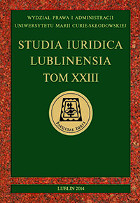
We kindly inform you that, as long as the subject affiliation of our 300.000+ articles is in progress, you might get unsufficient or no results on your third level or second level search. In this case, please broaden your search criteria.

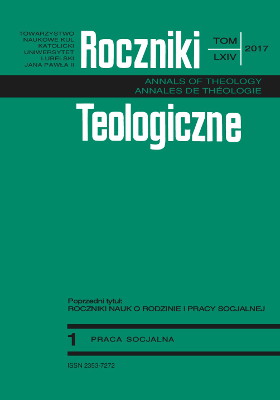
The subject of immigration in Poland has recently become very popular and been of interest to a wide social circles. It is an important element of the country policy. There are many causes of immigration. Among them we have: job searching, the desire in improving the conditions of life, escapes from wars, battle conflicts, race persecution, nationality, political differences or the membership of a particular social group. Particular groups of migrants are refugees. Many government institutions, non-governmental and international are involved in assisting foreigners. Social assistance gets developed programs to the immigration relocation and prepares a business plan for acceptable the refugees.The intention of the work is characterizing the subject of immigration in Poland and the statement of readiness of the country to provide protection to foreigners especially refugees.
More...
After a period of going easy on dissent, the Lukashenka regime crushed nationwide protests in March.
More...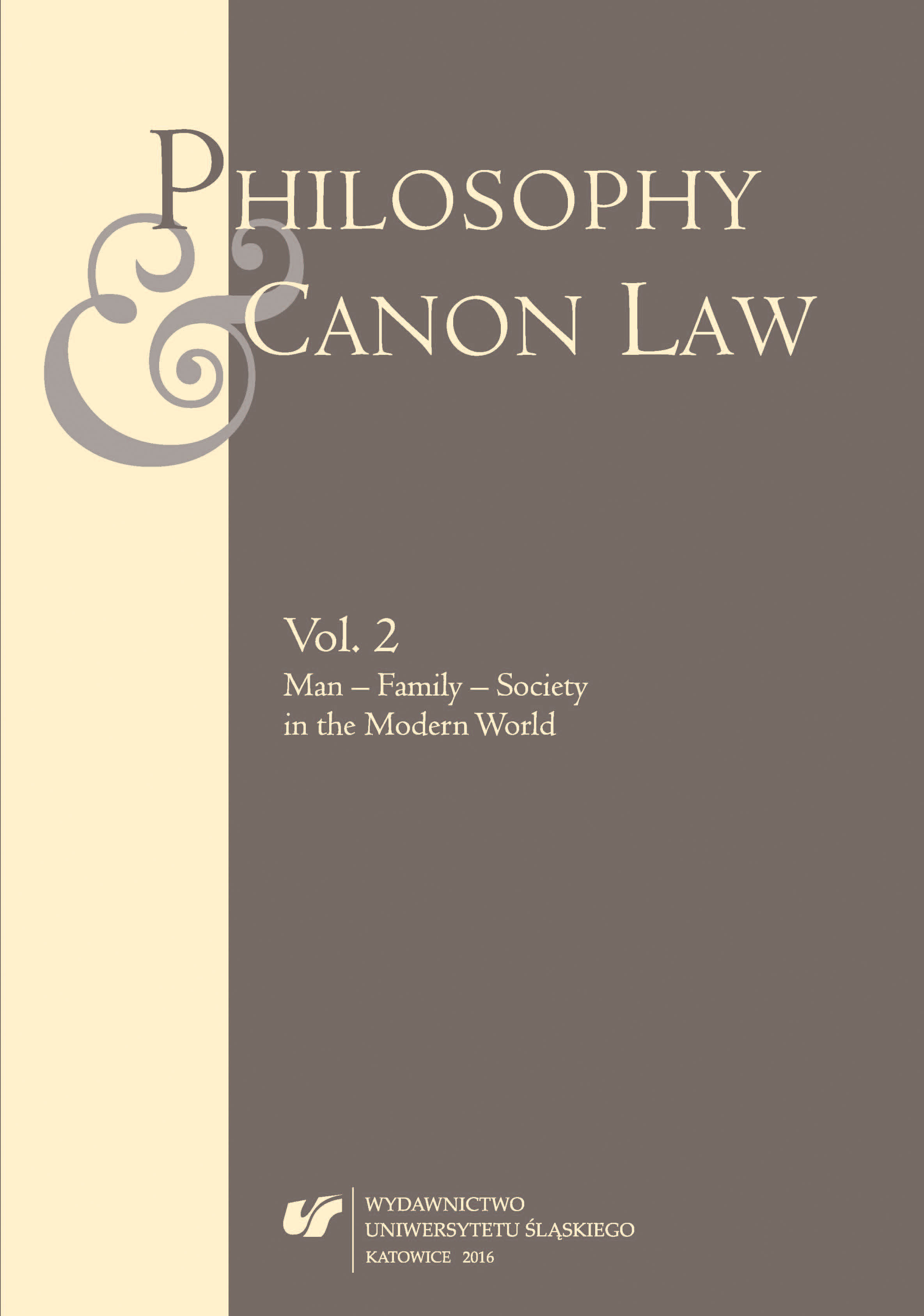
Drawing on an analysis of two well-known documents of the social teachings of the Church (Rerum Novarum and Gaudium et Spes), this paper aims to demonstrate a noticeable conceptual development of the notion of politics and political authority which occurred between the end of the nineteenth century and the Second Vatican Council. The criterion used in the analysis was Francisco Suárez’s political writing of the Enlightenment period. It is argued that politics was defined not only in relation to natural familial community and to the separation of ecclesiastical and secular authority, but also in relation to the return to traditional Aristotelian and Thomistic notions.
More...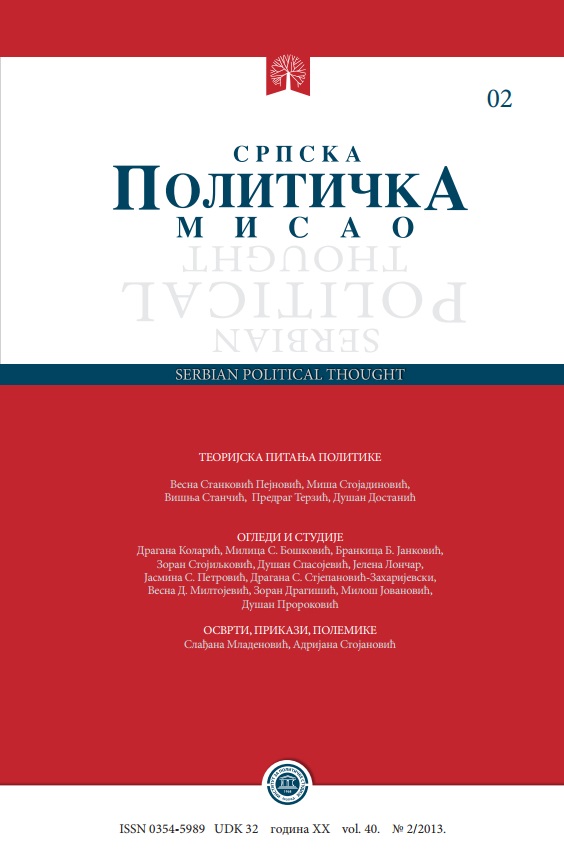
Dissatisfaction with individual’s own living and/or working conditions causing for persons to act irrational, risky, even desperate, for the purpose of making their living standard better. By this kind of acting, some people become victims of crime, while others become criminals. At both cases, state and society security face serious challenges. Human security, as modern concept, for its focus has individual and all aspects important for his life quality. Wozniak, Hagan, Quinney and other representatives of ‘’peacemaking’’ criminology, consider that ‘’classic’’ criminology treat poverty and other unfavorable social circumstances as one of variable at multivariate analysis of crime issues. Representatives of ‘’critical’’ criminology, which ‘’peacemaking’’ criminology is the part, are dedicated to the construction theory which they consider as source of better conceptual tools and instruments for understanding of actual conditions and things that may happen, concurrently focusing on demands for positive changes at society and social justice. The objective of this article is the analysis of possibility for implementing ‘’peacemaking’’ criminology references for purpose of security policy’s review and making stronger following basis of any society: economy, education, health and social protection. The implementation of mentioned criminology concept, should help improving the quality of life, as continuous measure for crime preventing. At this article we analyzed and explained official data provided by Serbia’s institutions, which show number of executed criminal acts (Ministry of interior’s data) as well as macroecomic data (Ministry of finance and economy). All data are collected and presented for period year 2009- 2011. As suggestions for directions through which institutional frameworks and measures against deterrent social factors can be improved, relying to ‘’peacemaking’’ criminology references, we recommended following: a) Anti- discrimination behavior and human rights have to be unequivocally, coordinately and continuously promoted by authorities’ representatives as well as political, educational and cultural elite at the State; b) Individuals, marginalized and vulnerable groups as subjects and objects of security policy, have to be involved into process of creating social and economic system policies, which should be understandable, available and meaningful for them; c) Rights at area of living, working, education, health and social protection and personal security have to be defined and regulated by laws and it have to be done in the way which will represent and respect all (protected) values of persons, society and state, those rights should be the result of all states’, society’s, institutions’ and social groups’ relevant presenters, which changing of those right make harder or even impossible as consequence of the political changes at the country; d) Resources of educational, health and social protection systems should make stronger for the aim of more immediate and adequate working with individuals and social groups as well as promptly recognizing and preventing risks and anomies that could lead to criminal behavior, system for supporting victims of violence and system for supporting former convicts’ resettlement should also be made stronger.
More...
The paper deals with the development of state functions and activities which they are achieved. Particularly noteworthy is the security functions of the state in its classical sense, ie as an activity of the police on providing security to citizens. This function is yet in modern liberal and social democracies evolved into one of the most important tasks of all constitutional orders: the constitutional, judicial and administrative protection of a number of personal, political, labor, property, religious, ethnic, cultural and other rights and freedoms of man and citizen. The paper also referred to international legal and constitutional guarantees of human rights, and mechanisms for their protection, and the security function of the state is determinated.
More...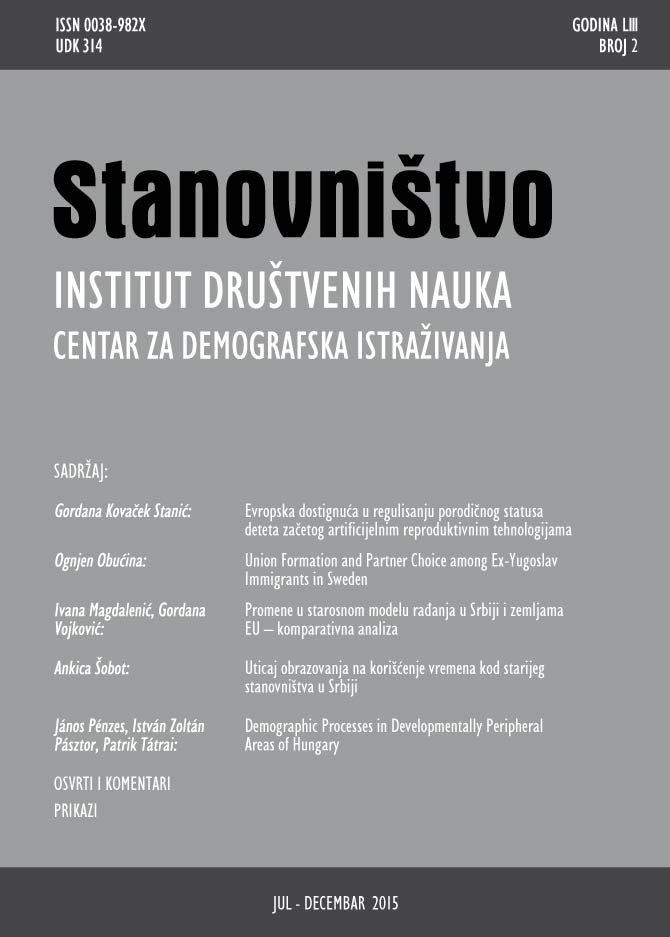
In this paper, the author analyzes family status of the child conceived by artificial reproduction technologies using the following treatments: homologues artificial insemination, heterologus artificial insemination (artificial insemination by donor), ovum donation, embryo donation and surrogate motherhood. One specific situation of homologues artificial insemination is posthumous insemination, insemination after the death of the husband/partner. This procedure is allowed in, for instance, United Kingdom, but not allowed in France, Switzerland, and Italy. Considering genetics elements in this situation there is no doubt on fatherhood – father is a man whose sperm is used for insemination, regardless of the fact if frozen sperm or frozen embryo is used in the procedure. Nevertheless, until 2008 in United Kingdom, the husband/partner was not considered as legal father, because of the fact that the child was born after his death. Heterologous artificial insemination could be used in three different situations. First, when subjects are spouses or unmarried partners of different sexes. Second, when subjects are spouses or unmarried partners of the same sex and the third if a single woman is an only subject. Most recent procedure is the one in which subjects are spouses or unmarried partners of the same sex, specifically two women. This procedure is allowed in the United Kingdom and Sweden. In these legislatures, there is a rule that the woman who delivers the child is legal mother, and her spouse/partner is a second parent of the child. The most recent procedure of egg donation is a donation of only a part of an egg, mitochondrial DNA. In this case, there are in fact three genetic parents of the child: two genetic mothers and a father. Legally, the child has one mother (the woman who delivers a child) and a father. One of potential outcomes of the recent research is the ability to create human embryo without any male genetic contribution – by transferring the nucleus of a somatic cell from one woman into an enucleated egg of another. In that case, the child would not have genetic father at all. Bearing in mind the new artificial reproduction technologies and their influence to legal rules of establishment of the family status of the child, it could be said that the legal principle of the autonomy of the parties is widened in comparison to material truth. People who wish to be parents become legal parents although they are not generic parents. Sometimes they cannot be genetic parents due to their infertility and sometimes because they are of the same sex. As a result of artificial reproduction technologies, a child could have a genetic link with one of the parents, only with a mother – in the heterologous insemination, only a father – as in egg donation and genetic surrogacy. The child could have genetic link with both of the parents – as in the gestational surrogacy, or it could have no genetic links with his/her legal parents – as in embryo donation. According to some European legislatures, it is possible for the child to have a mother and the other female parent, or a father and the other male parent. Surrogate mother, as well as donors of the genetic material, are not considered as parents. Radical change in social and individual perception of parenthood could accept the fact the child could have more than two parents with different roles (biological - genetic parents, gestational mother, social – legal parents).
More...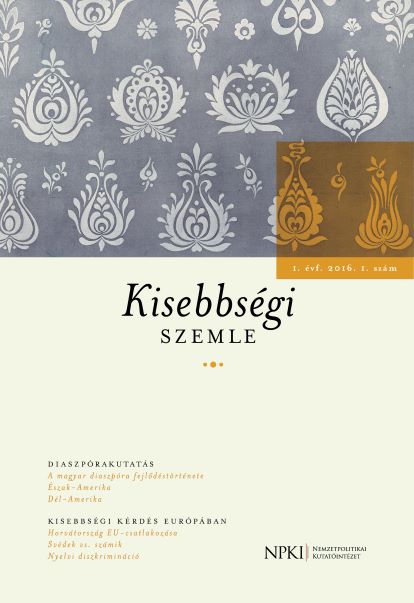
The article analyzes the reasons why the Swedish community in Finland proved to be more successful, relative to the Samis, in implementing their political, social and economic aspirations. Parallel to the relevant scientific literature, the study is partly based on a fourmonth long research visit to Finland, conducted in 2015, April to July. The analysis found that the success of Swedish-speaking Finns is, to a large extent, the result of the peculiar historical development of the Finnish nation and the role of the Swedish speaking community in that process. Other relevant factors that contributed to Swedish success included better lobbying, a larger number of Swedes compared to Samis, as well as better representation in domestic and international institutions.
More...
The present article gives a critical account of the European General Court's judgment in the B.A. vs. Commission case. B.A., a Hungarian and Romanian dual citizen sought the annulment of the decision of European Personnel Selection Office (EPSO) which denied her the right to sit for the competition in her native language, Hungarian and refused to admit her to the oral test after she failed the test in Romanian. B.A. claimed that she had been afforded unequal treatment, since the fact that she was precluded from writing the test in Hungarian “placed her, on an objective view, at a disadvantage compared with her fellow citizens who had received their school and university education in Romanian.” The case and the arguments put forward by the parties provide a clear insight into the ambiguities surrounding the EU language regime as well as the difficulties faced by minorities whose mother tongue is both an official language of the EU and a minority language with no official recognition in the Member State in which it is spoken.
More...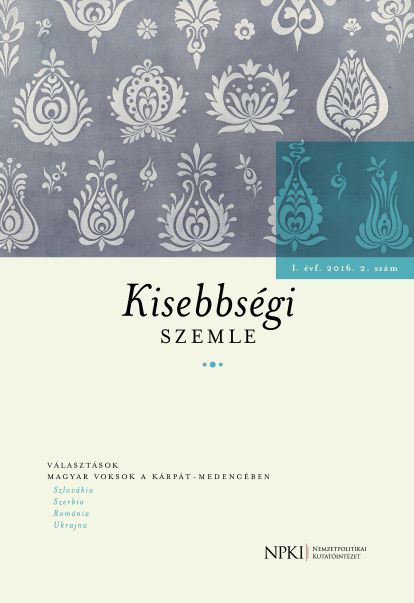

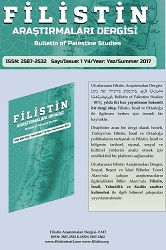
:Palestine issue has been confined today to the limited understanding of nationalism. All the solution proposals made within the insight of nationalism have proved to be unsuccessful. Additionally, those solution proposals were unlikely to offer a just and fair solution to the Palestine issue. Today the struggle for the Palestinian state has begun to transform into a struggle for equal rights between Jordan and the Mediterranean. Within this context, based on Kant‟s “perpetual peace” concept, and engaging with cosmopolitan vision, this study seeks to pose whether a just and fair solution to the Israeli-Palestinian conflict passes through the creation of a single state in Palestine. The case for one–state solution is a normative one and it is a question of morality. The author acknowledges the dark spots of this option; however intends to lay bare new and open discussions concerning the resolution of the Israeli-Palestinian conflict.
More...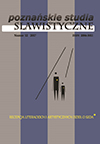
Muratović, Rasim, Holokaust nad Jevrejima i genocid nad Bošnjacima (Holokaust Żydów i ludobójstwo Boszniaków), Institut za istraživanje zločina protiv čovječnosti i međunarodnog prava, Univerzitet u Sarajevu, drugo izdanje (Instytut Badań Zbrodni przeciwko Ludzkości i Prawu Międzynarodowemu, Uniwersytet w Sarajewie, wydanie drugie), Sarajewo 2012, 277 s. Zbrodnia ludobójstwa oraz inne zbrodnie przeciwko ludzkości zdefiniowane przez prawo międzynarodowe stanowią część historii od najdawniejszych czasów, przy czym w najnowszej historii najgłębiej zapisało się w zbiorowej pamięci okrucieństwo II wojny światowej, podczas której w akcie ludobójstwa życie straciły miliony ludzi, co, po zakończeniu konfliktu, skłoniło państwa zwycięskie do utworzenia Organizacji Narodów Zjednoczonych (ONZ), której celem stało się utrzymanie pokoju i bezpieczeństwa na świecie, szerzenie tolerancji oraz promowanie poszanowania praw człowieka i wolności zagwarantowanych w Powszechnej Deklaracji Praw Człowieka.
More...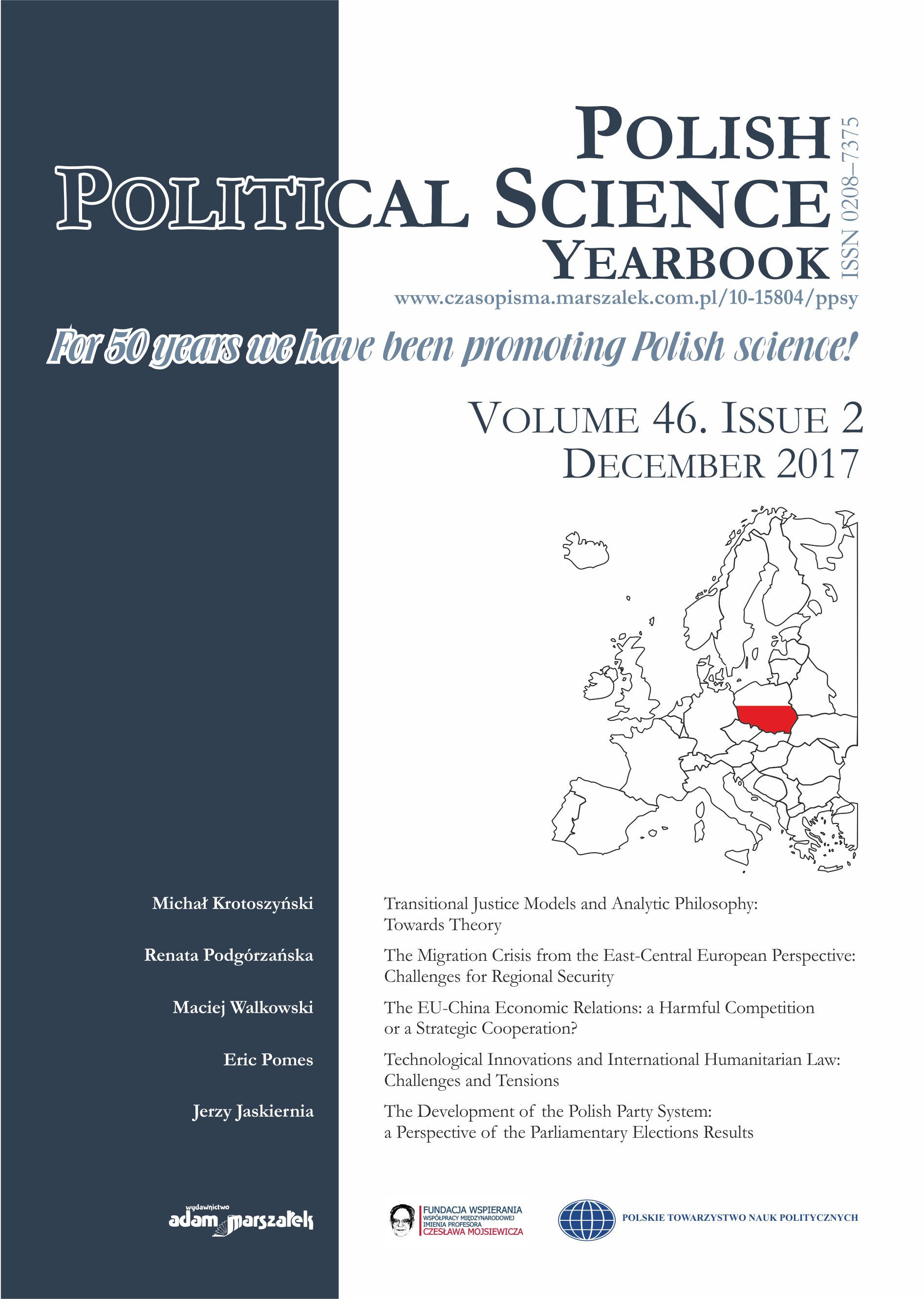
In recent years, armed conflicts have changed in nature (civil war, ‘terrorism’) and the means used are increasingly technological (robotisation, cyberwar). Faced with these developments, some would claim International Humanitarian Law (IHL) is outdated. While these technological innovations present new challenges in the application of IHL, it still constitutes a relevant legal framework for armed conflicts and the conduct of hostilities. Indeed, the flexibility of IHL allows it to adapt to contemporary conflicts. Therefore, this shows that the statements about its obsolescence are primarily political in nature.
More...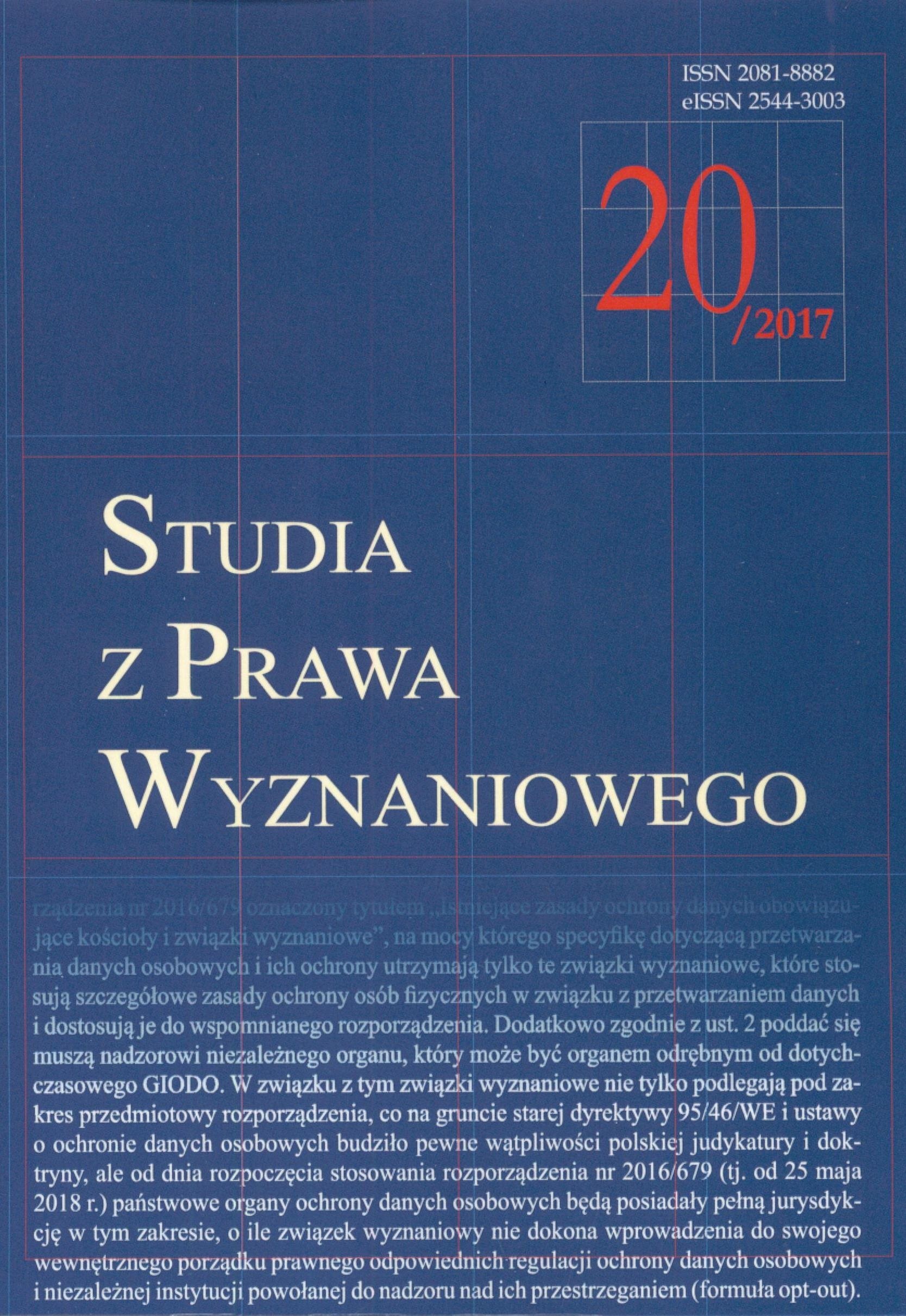
This article deals with the movement known as “Patriotic Europeans against the Islamisation of the Occident,” or Pegida, focusing primarily on the nativist dimension which often takes centre stage in its ideological discourse. Pegida describes itself as a defender of Western Civilization and of its Christian legacy from what it sees as the perils of Islamisation on the one hand, and of globalist political elites on the other. In the context of the political changes and rise of alternative visions of civil society, particularly in Central and Eastern Europe, Pegida should arguably be seen as a representative of a growing European nativist wave. Lastly, the article looks at the “Prague Declaration,” a document which was signed in 2016 by Pegida and a number of allied movements from outside of Germany.
More...
This article traces and analyses the narrative of the “veil debate” in France and Turkey as constructed by two Greek newspapers: the liberal Kathimerini and the leftist Avgi. It aims, firstly, to bring out the interconnection between the political ideological orientation of each of these newspapers and the narrative that they adopt, and secondly, to shed light on how the peculiarities of the socio-political context intersect with the narrator’s interests and preferences in the process of building the framework for public discussion in Greece. It concludes that the Greek narration of the “veil debate” in France and Turkey runs along normative lines (irrespective of the newspaper’s ideological affiliation), challenges the validity of Westphalian values, reflects the interdependence between socio-political contexts, and takes into consideration the supranational discourse of Greek foreign policy.
More...
The influence of religion on the freedom of conscience cannot be defined in simple terms. Religion is often conceived as limiting the freedom of conscience. However, from the perspective of the philosophy of religion it is necessary to underline the significance of the adoption of democracy as a principle of government. The limitation of the freedom of conscience by religion could be explained, on an anthropological level, by the identity function realized by religion. Nevertheless, religion can exist without being accepted by all. Beyond the evidence of a possible coexistence of religion and political pluralism, religion inherently implies the recognition of the freedom of conscience. The respect for the freedom of conscience results from the human condition itself. Religion makes it possible to transcend one’s cultural identity. In return, the freedom of conscience is based on a faith in the equal value of the conscience of every human being. The latter is recognized not only as the means but also as one of the purposes of political power. Religion and the freedom of conscience seem to derive from common foundations. The legal recognition of the freedom of conscience has a concomitant impact on religion by the regulation of its exercise.
More...
The issue of protection of personal data in religious communities will be subject of a significant change due to (EU) Regulation No. 2016/679 of the European Parliament and of the Council of 27 April 2016 on the protection of natural persons with regard to the processing of personal data and on the free movement of such data. The new EU regulation introduces an important mechanism that forces churches to develop an internal data protection law and an independent supervisory authority. In practice this means strengthening the constitutional right to privacy in the largest churches based on their internal institutions, but also involves a risk of subjecting many smaller religious communities to public scrutiny. Many doubts regarding Article 91 presented by Polish commentators specializing in the protection of personal data show how important this issue and the preparation of changes are for religious communities.
More...
The analysis of contemporary constitutions indicates that the number of religious states is slowly decreasing. However, we are confronted with the opposite tendencies. The model of the religious state is characteristic primarily of Muslim countries of the Near and Middle East and of a number of Southeast Asian countries. In the last decades, the number of Christian states and secular ideological states has declined significantly. There is a stable group of states with Buddhism as a privileged religion. The religious constitutional norms of confessional states are generally characterized by a high degree of generality. Detailed provisions are rare. Denominational clauses are included primarily among the supreme principles of the constitution. Underlying the religious character of the state is the rejection of the neutrality of the worldview. It is not possible, on the basis of the constitution alone, to reconstruct a detailed, universal model of the religious state. In the light of fundamental laws, the most common characteristics of religious states are: the negation of the neutrality of the state in worldviews, the acceptance of a particular religion as the official religion, the rejection of the equality of religious associations, the requirement of a state religion or belief towards the head of the state, the state support for a given confession. The constitutions of the majority of religious states formally provide for religious freedom. In the fundamental laws of some Muslim states, the formal guarantees for this freedom are, however, absent. The organizational unity of the state and religious apparatus is not characteristic of the sphere of Western political culture. The socio-political reality of contemporary religious states indicates that this model of statehood can not be a priori regarded as contrary to the principles of democracy and human rights.
More...